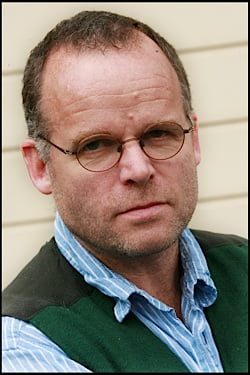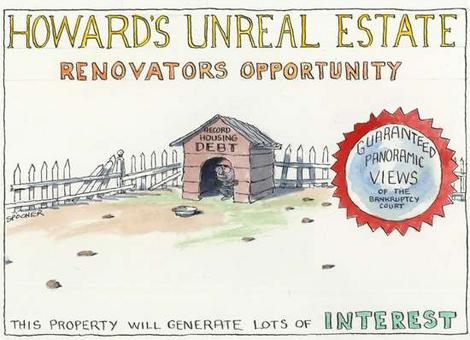 From Andy Wightman’s “Land Matters” website.
From Andy Wightman’s “Land Matters” website.
You say we need more funds to tackle poverty, homelessness, health, the environment, education and infrastructure? I say instituting the Henry Tax Review is a BIG step towards solving those problems.
 From Andy Wightman’s “Land Matters” website.
From Andy Wightman’s “Land Matters” website.
You say we need more funds to tackle poverty, homelessness, health, the environment, education and infrastructure? I say instituting the Henry Tax Review is a BIG step towards solving those problems.
“Offshore Investor” issue 227 on Sovereign Risk, June 2012
Former Treasury tax expert Dr Terry Dwyer challenges Australia squandering its luck.
He’s spot on.
You say we need more funds to tackle poverty, homelessness, health, the environment, education and infrastructure? I say instituting the Henry Tax Review is a BIG step towards solving those problems.
 Joseph Stiglitz confirms our tax regimes are rigged in favour of the 1%.
Joseph Stiglitz confirms our tax regimes are rigged in favour of the 1%.
Tax systems and land speculation may sound terribly boring, but if you’re alert to exactly how they damage 99% of us, you’ll see they definitely aint boring!
They’re key to turning this thing around.
You say we need more funds to tackle poverty, homelessness, health, the environment, education and infrastructure? I say instituting the Henry Tax Review is a BIG step towards solving those problems.
How to Outlaw Cheating and Save Our Civilisation
Fred Harrison, Shepheard-Walwyn, London, October 2012
___________________________________________
The West faces an existentialist crisis which cannot be resolved within the current paradigm of politics and laws. This thesis, advanced by Fred Harrison, traces the pathologies of the 21st century to a culture of cheating that is too deeply embedded to be eliminated by the ruling elites. A Great Awakening is needed, to generate the power to motivate a mass movement behind reform.
The author’s “decline of the West” prognosis is grounded in a sociogenic survey of the conditions that led to the evolution of humanity. Harrison classifies the natural laws on which healthy societies rely for long-term viability. Armed with insights from anthropology, evolutionary psychology and history, the author exposes the cheating at the heart of civilisations that collapsed, in the past, a cheating which is now corroding the foundations of western civilisation.
Cheating as a social process arises when that part of a population’s income which everyone helps to create is privatised. Economists call that income economic rent. It made possible the formation of the social “commons” – all the components of what constitutes the collective consciousness of humanity. Today, the West is weakened by the sustained onslaught on the rents that measure the value of services provided by nature’s and society’s commons. So many people now want to live off rents that they cannot be supported by the people who add value to the wealth of the nation.
In the past, those who sought to live off the labours of others preserved their privileges by perverting power. The power of creativity was corrupted and diverted away from the common good. As a result, societies are not now grounded in the authentic cultures that would otherwise have emerged as expressions of the preferences of free people. The outcome is a perverse social structure whose agents are incapable of recognising the cause of problems like institutionalised poverty and environmental degradation.
The author shows that pre-literate peoples successfully created sustainable communities because they assigned property rights in nature to their deities. This tradition was maintained by the first monotheistic religion. The Old Testament elaborated the theology of land. It was a covenant with God: the gift of land in return for living a moral life that freed people to realise their human potential. The biblical stories are focused on what goes wrong when that sacred covenant is breeched. The outcome is the trauma of landlessness. The Old Testament provides one template for re-basing society on principles that would re-establish harmonious relationships between people, and between them and their natural habitats.
Secular declarations of human rights, like the UN’s Universal Declaration of Human Rights, do not reflect realities on the ground. The “rule of law”, as currently constituted, cannot lead to the realisation of each person’s freedom while society is captured by a privileged class of rent seekers. This thesis is tested against the histories of the UK, Argentina and China. The evidence demonstrates that populations are traumatised when they are violently disconnected from their natural habitats. China is a real-time study of a population being converted into that state of trauma.
Social progress in the past was driven by the re-awakening of spiritual and moral sensibilities. A new Great Awakening is needed to inspire the leadership required to rescue a globalised civilisation that many observers believe is in decline. Harrison challenges those who want the awakening to be inspired by scientific reasoning. The secular approach, he argues, needs to provide a compelling account of how the rule of law can be reconfigured to deliver the justice that is embedded in natural law.
It is not too late to rescue the West from a looming Dark Age. Harrison explains that society’s automatic stabiliser is the pricing mechanism that treats land rent as the public’s primary source of revenue. If this financial formula is adopted, it would be possible to pay off the debts that now burden nations and enhance everyone’s employment prospects. This would facilitate the transition to re-balanced communities in which people were free to enjoy healthy lives unimpeded by cheating.
You say we need more funds to tackle poverty, homelessness, health, the environment, education and infrastructure? I say instituting the Henry Tax Review is a BIG step towards solving those problems.
 I still chuckle at the memory of a particular cartoon strip on the back cover of a 1960s MAD magazine. [No, it wasn’t a Spy v. Spy!]
I still chuckle at the memory of a particular cartoon strip on the back cover of a 1960s MAD magazine. [No, it wasn’t a Spy v. Spy!]
An abstract artist draws a large rectangle he labels “Self Portrait” on a concrete footpath.
He then sprints to the top of an adjoining skyscraper and proceeds to jump off, destined to complete his self-portrait.
LOL! 🙂
The guy was clearly conversant with Newton’s laws of motion.
Unfortunately, mainstream economists aren’t quite so aware of another natural law, Ricardo’s law of rent. Despite all the repetitive evidence to the contrary, they continue to believe we can ascend to the top of a gigantic land price bubble without going “splat!” at the bottom when it bursts.
Shackled to such incredible misbeliefs, maybe MAD magazine is the proper place for libertarian and neoclassical economists?
You say we need more funds to tackle poverty, homelessness, health, the environment, education and infrastructure? I say instituting the Henry Tax Review is a BIG step towards solving those problems.
Although the Henry Tax Review’s federal land ‘tax’ recommendations would permit the abolition of a number of quite damaging Australian taxes, Treasurer Wayne Swan announced in May 2010 the Rudd Labor government wasn’t contemplating introducing them. Along with the one percent, errant banking and real estate industries shared a deep sigh of relief.
 From 1996 to 2007 Liberal Party Prime Minister John Howard–aided and abetted by his Treasurer Peter Costello–presided over developing the greatest real estate bubble in Australia’s history, but Labor decided it wasn’t about to tame the bubble. Any such action was considered to be too close to home (so to speak). So, Australians would have to take what’s coming – and it mightn’t take place on Labor’s watch, anyway.
From 1996 to 2007 Liberal Party Prime Minister John Howard–aided and abetted by his Treasurer Peter Costello–presided over developing the greatest real estate bubble in Australia’s history, but Labor decided it wasn’t about to tame the bubble. Any such action was considered to be too close to home (so to speak). So, Australians would have to take what’s coming – and it mightn’t take place on Labor’s watch, anyway.
So much for principle.
One hundred years after introducing a federal land tax in 1910, the once great Australian Labor Party had done a volte-face, and both major parties were now on common ground, actively promoting the continued privatisation of publicly-generated land income.
What will be the practical consequences of the political parties failing to address the Australian bubble in land prices?
They ought to be obvious because we’re currently witnessing many of them overseas.
First, we need to see there’s a demonstrable counter-relationship between rapidly rising land prices and productivity. Once this is understood, the collapse of the US and European financial systems should no longer remain a mystery – although judging by the poorly chosen actions of governments and their reserve banks across the globe, the fact does appear to have escaped them.
It’s simple. A crisis in production follows close on the heels of financial collapse, and social distress will then ensue on the homefront as private debt comes home to roost and a lack of effective demand comes into play.
Half-hearted post facto attempts to capture some of the economic rent of land in the UK, Greece, Ireland, and elsewhere–even China has begun tinkering with the idea–will only bring about half-hearted results.
As Australia remains behind the curve with its still unburst property bubble, it has an unequalled vantage point to learn from the misguided political reaction of other nations.
However, with neither major political party in Australia supporting Ken Henry’s thoughtful proposals for tax reform–which would clearly unburden labour and capital and curb our gargantuan appetite for real estate speculation–we have no reason at all to believe we’ll come out of this well.
Our politicians meanwhile continue on with their nonsense and misrepresentations.
It’s not looking good.
You say we need more funds to tackle poverty, homelessness, health, the environment, education and infrastructure? I say instituting the Henry Tax Review is a BIG step towards solving those problems.